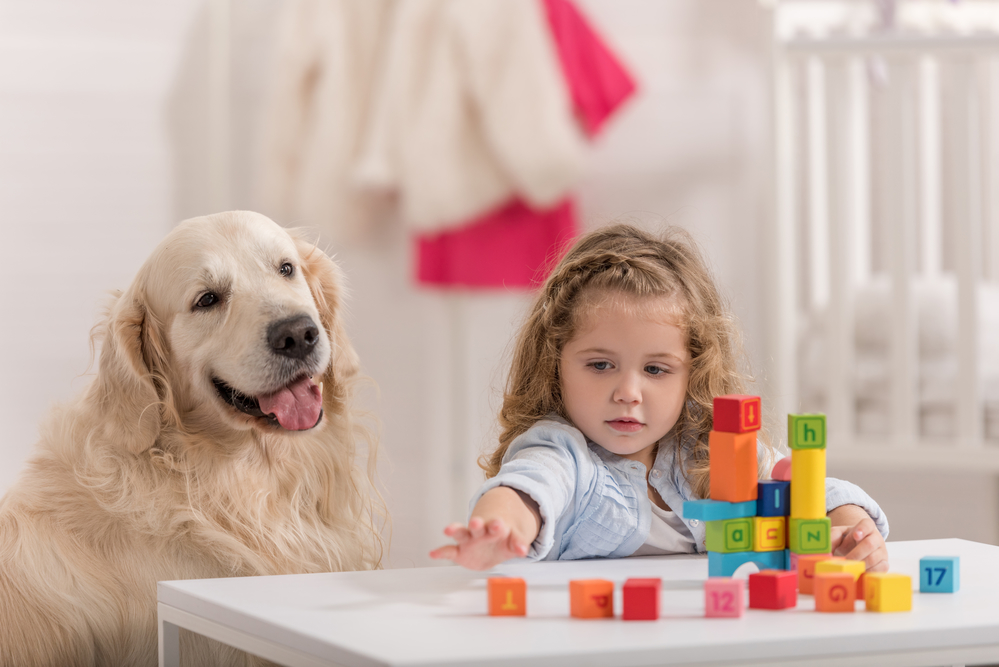Many parents use positive affirmations with their children in an attempt to boost their self-esteem. But what is the science behind these seemingly magical phrases? Does saying “you are smart” or “you are beautiful” actually make a difference? New research suggests that, when used correctly, positive affirmations can be an effective tool in helping kids feel good about themselves. Learn more about how to use them effectively below!
As parents, we need to love, support and encourage our children. However, it is also important that children learn to find and create positive emotions within themselves. When children have strong self-resources, they tend to have more positive thoughts about themselves and the world around them, making it harder to be negatively influenced by others.
We all develop our belief systems, about ourselves and the world around us, from our environment. Our family and friends, role models, television, magazines, and advertising can be nurturing or damaging. It is essential that we learn to take control of our beliefs from a young age. Negative beliefs can impact our lives significantly and can be hard to shift as we grow older.
Affirmations are a nurturing and effective way to help wire our children’s brains to be kinder to themselves and others, reassure their importance in the world, self-worth, self-esteem, and self-belief.
What are Positive Affirmations?
Positive affirmations are phrases or statements that you say to yourself to challenge unhelpful or negative thoughts. You may choose positive affirmations to motivate yourself, encourage positive changes, or boost your self-esteem. If you or your child often get caught in negative self-talk, positive affirmations can be used to assist. The brain can be trained to think in a more positive and beneficial way that promotes well-being.
According to Dr Christopher Cascio, affirmation takes advantage of our reward circuits, which can be quite powerful. Many studies have demonstrated that these circuits can dampen pain and help us maintain balance in the face of threats.
The Science Behind Positive Affirmations
One of the key psychological theories is “self-affirmation theory” (Steele 1988). Studies show that we can maintain our self-esteem and integrity by telling ourselves affirming and positive thoughts. The development of this theory has led to neuroscientific research aimed at seeing changes in the brain when we say affirmations. For example, MRI evidence shows that specific neural pathways are increased in the prefrontal cortex when people practice self-affirmations.
How to Practice Positive Affirmations With Your Child
Make it fun
Talk to your children about using affirmations and how they can help. For example, you could say: “Affirmations teach you new and positive ways of thinking. They can help you believe in yourself, feel happy and help you to feel better when you are angry or sad. Let’s try them and see what we think!” or “Affirmations encourage kind and happy ways of thinking; you will remember them when you need them most.”
Make it available
Place affirmation cards around the house in areas they will see them. Just reading the words will help them affirm positive beliefs. For example, stick them to the mirror in the bathroom so they can read it while they brush their teeth morning and night. Another great place is on the kitchen table or in the lunchbox.
Be a role model
Make affirmations part of your routine as well, or you might want to do it as a family. Reading your affirmations together might be the door your child needs to share their emotions or issues with you.
Use a mirror
Some of us may find it challenging to look at ourselves in the mirror without being critical, judgemental or negative. Repeat your affirmation while looking yourself in the eyes in the mirror. Young children introduced to this concept feel more comfortable and far less confronted looking at themselves in the mirror. If you find that your children feel it is difficult to look in the mirror to say their affirmations, it is best not to push them. Affirmations are still effective by just reading the words aloud to yourself.
Repetition is key
Affirmations are more effective when repeated 3 times. Say the words aloud and more confidently each time.
Choose your frequency
Depending on how confident your child is with each affirmation, you may like to work on one affirmation a day or once a week. If they seem to struggle with an affirmation, you may want to continue working on that one longer.
Write your own
You can use ready-made affirmation cards or write your own. Write a list of your child’s qualities to help them remember they are resourceful and loved.
Affirmations should be used to help children to be their best, nurture happiness and positive feeling. It should never be used as punishment, time-out or immediately after an undesired behaviour.
Why Positive Affirmations might not be working
There are three main reasons why Positive Affirmations might not be working.
Firstly, if you are using off the shelf affirmation cards may sound too different to the language your kids would use with themselves. The language used on cards can be too elaborate for children to easily absorb.
Secondly, positive affirmations need to be personalised in order for them to work. They need to reflect your child’s individual strengths and qualities!
Thirdly, it might be that the positive affirmation is too optimistic. It is hard for your child to go from believing the negative affirmation to believing this super positive affirmation.
If your child thinks: “I’m stupid,” and the affirmation card says, “I’m very clever.”
Or “Nobody likes me,” and the card says, “Everybody likes me.”
The two opposing statements are too far away from each other to be believable.
How do I create positive affirmation that works for my kids?
- Encourage your child to write their own Positive Affirmations with a NEUTRAL Affirmation statement first, before moving to a positive one.
- Start with a NEUTRAL Affirmation statement. This is a statement which is true, but isn’t too positive or negative. For example, “I can do this,” or “I am trying my best.
- Thinking about what your child loves most about themselves- their personality traits, strengths or interests. Once you have some ideas, turn these positive statements into personalised positive affirmations.
For example, if your child loves animals, you could say:
“I love the way I am so kind to animals” or “I’m great at looking after pets.”
In a world where self-esteem seems to be at an all time low, parents have been turning to positive affirmations in the hopes of boosting their child’s confidence. When used appropriately positive affirmations can be very beneficial and an excellent family bonding activity.
My name is Daniele. I’m a registered psychologist and founder of Superpower Kids, a program that delivers social-emotional learning resources to thousands of children in Australia and globally.
My work has appeared on:
https://mindfulparenting.com.au/contributors/daniele-clarke/
https://thenaturalparentmagazine.com/teaching-values-based-life-skills-emotional-health-for-kids/
https://thenaturalparentmagazine.com/reframing-failure-can-help-us-grow/?v=d76c77a873e2
You can check out the Superpower Kids blog here:
https://www.superpowerkids.net
Please let me know what you think of this idea or need more information.
Thank you
Daniele Clarke









